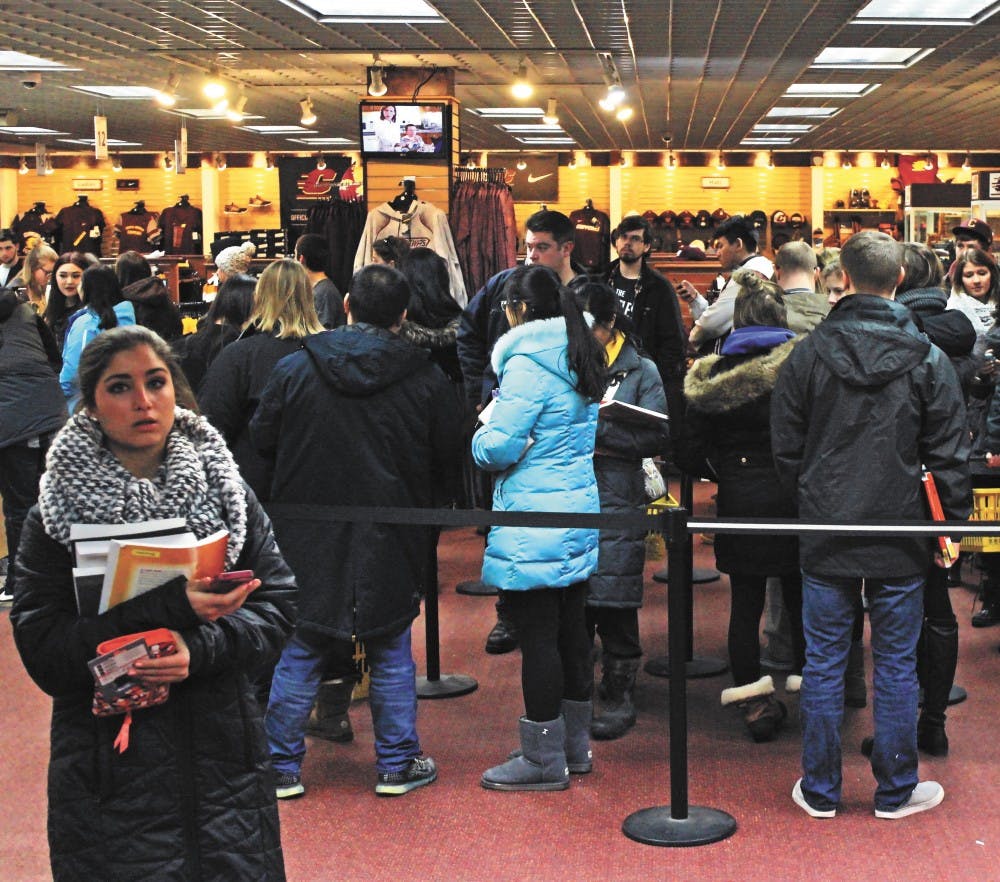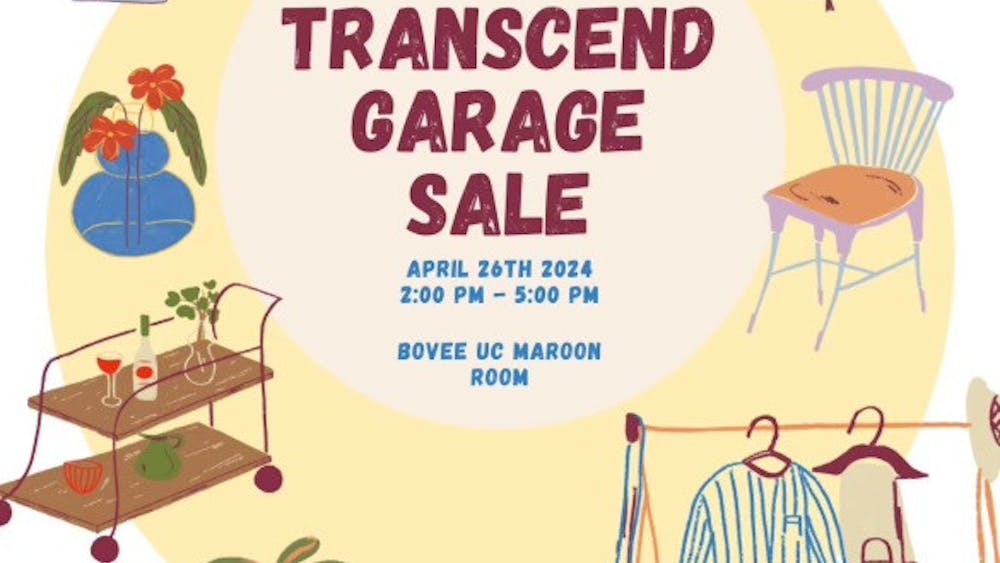Resigned to the rip-off: How students, faculty attempt to beat high bookstore prices
Students attempt to beat bookstore prices through alternative methods. But the question still remains: Why are textbooks so expensive?

As she stands in the middle of an aisle for English textbooks, it would be easy to miss Jamie Price. The only thing visible over the tower of books stacked in her arms is a pom-pom on the tip of her beanie hat.
The Belleville senior has bought books at the Central Michigan University Bookstore since she came to the university five years ago. She has never been happy about the amount of money she has to pay.
"When I was a science major, I never bought my books from (the CMU Bookstore)," Price said. "I always got them from Amazon, Chegg or wherever I could find (them) the cheapest."

Since changing her major from biology to English, Price has been more likely to buy books from the CMU Bookstore because of the difference in price between English and science-specific textbooks and the likelihood she will read the texts more than once.
"The books that I don't think I'll need, I rent," Price said. "But as an English major, I'll probably read a lot of these (novels) again just because I like the subject matter. So I buy those."
Since her freshman year, Price estimated she's spent more than $1,000 on books. According to College Board, a student who spends four years at a university will spend an average of $1,200 on textbooks. This breaks down to $300 a year and $150 on books per semester.
In fall 2014, the CMU Bookstore sold 63,483 books and rented 13,931. The following year, 71,636 books were sold and 15,301 books were rented in the fall semester.
Renting is a cost-effective way for students to get the materials they need for class, said Director of the CMU Bookstore Barry Waters. Using "Federal Tax Research" by Roby Sawyers as an example — as the most expensive book in the bookstore, it can be bought for $361.75 and rented for $271.25. At its full price, "Federal Tax Research" costs almost as much as one credit hour, or $395.
Waters has worked with the CMU Bookstore since 2003. He said rising costs are as much a concern for university bookstores as it is for students.
"Textbook publishers (are) trying to price students, faculty and bookstores out of the physical book," he said. "It is crazy how much book prices have gone up since I have been here."
Recent data from the National Association of College Stores estimates that from 2007 to 2013, the price of the average new textbook sold in university bookstores has gone up $22. Though it may not seem like much, if a student has to buy six books for a semester course load, that's an extra $132 added to their bill.

*data gathered from Twitter polls posted @CMLife
To try and help students, Political Science and Public Administration faculty member Joyce Baugh switched to an online book for her PSC 105 course last fall. It may have saved students money, but Baugh doubts she'll ever do it again.
"It was obvious that a lot of the students were not reading the book. It was more difficult to get students to do the reading since the book was online," Baugh said.

"I would not do an online book again unless it was my only option," she said. "It's already difficult to try and get students to read, and I feel that having a physical book is probably more helpful. I understand the pricing issues and so forth, but I just think if we really want to educate students then they have to do the reading assigned with the course. In my experience, they didn't."
On campus, the Student Government Association even attempted to help students find alternative ways to buying textbooks.
In 2014, SGA President Chuck Mahone and former Vice President Mariah Urueta partnered with Texts, a website which offers students a chance to browse for course material sold by their peers for below-CMU Bookstore price. The site would compare the price listed by the student-seller and provide links to websites also selling the material and the price it was listed as.
The site boasted 144 registered users and 137 active listings in January 2015. One year later, the site lists 193 registered users and 354 books for sale.

"Usage just decreased over time so we’ve taken a focus off of (the website)," Mahone said.
Initially, the organization was gifted 10,000 business cards and miscellaneous advertisement apparel to publicize the creation of Cmich Texts. SGA posted about the organization on their social media sites and tabled for the book sharing site in the library last year, but still the project did not gain the headway originally intended, Mahone said.
Because of a lack of student interest, which Mahone attributed to students being "unfamiliar with the Texts brand" and therefore distrusting it. He said there's no current plans for SGA's legislation to address UC Bookstore prices.
"We can’t change how the bookstore prices their books," Mahone said. "(SGA) can petition for it, but the chances of the bookstore changing the prices is (very unlikely)."
There's no way to get around buying books for classes. A look inside the CMU Bookstore doesn't show students who are jumping at the thought of spending money on textbooks which they might not use.

"I usually wait until the week classes start and then check the syllabus to see if the text is required," he said. "But at that point, to buy it online and to wait for it to ship in, you're already a week or so into class and to fall behind because you were waiting for (the textbook to ship) would just be really stupid."




